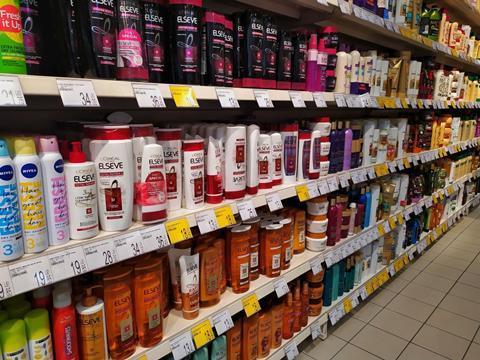
Veolia will supply L’Oréal with food grade certified recycled plastic to be used in the cosmetics company’s packaging, in a bid to reduce its carbon footprint and boost circularity efforts.
According to Veolia, the recycled plastic is obtained from plastic material present in waste derived from consumer packaging, particularly plastic bottles, which is collected and processed with specific tools to ensure its purity.
Veolia claims it has developed a pelletisation technology based on a system for the elimination of organic compounds to obtain higher-quality plastic, reportedly making it possible to obtain recycled plastic with comparable properties to virgin plastic.
Additionally, Veolia says that the recycled plastic complies with food industry requirements and international certifications, including those of the Food and Drug Administration (FDA).
Johann Bonnet, vice-president of business development and strategic accounts at Veolia, comments: “As a global champion of ecological transformation, Veolia is committed to reducing plastic waste and to promoting industrial ecology.
“We are delighted to support L’Oréal in achieving its sustainable development objectives, by providing our know-how in resource recovery and recycling.”
In 2020, L’Oréal pledged that all plastic used in its packaging would be recycled or bio-based by 2030. The companies suggest that the use of recycled plastic in cosmetic packaging can potentially reduce CO2 emissions by 50 to 70% compared to a standard plastic bottle.
Jacques Playe, packaging and development director at L’Oréal, adds: “We are pleased to enter into this partnership with Veolia for the supplying of very high-quality recycled plastic dedicated to cosmetic packaging, because we share the same ambitions and values in terms of sustainable development.
“This will contribute to our sustainable development programme “L’Oréal for the Future”, enabling us to achieve our 2030 ambitions and significantly improve the environmental footprint of our packaging.
“We are convinced that we will succeed in promoting the circular economy if we join forces with expert partners to attain common objectives. This approach can be referred to as working in an extended ecosystem.”
Other sustainability efforts from L’Oréal include a “world first” bottle made from captured and recycled carbon emissions, a process led by LanzaTech and Total to allegedly create polyethylene that has the same technical characteristics as fossil-based counterparts. The company also worked with Albéa on a paper- and bio-based cosmetic tube, while Arcade Beauty recently developed a monomaterial refill pack for some of the Elvive brand’s shampoo.













